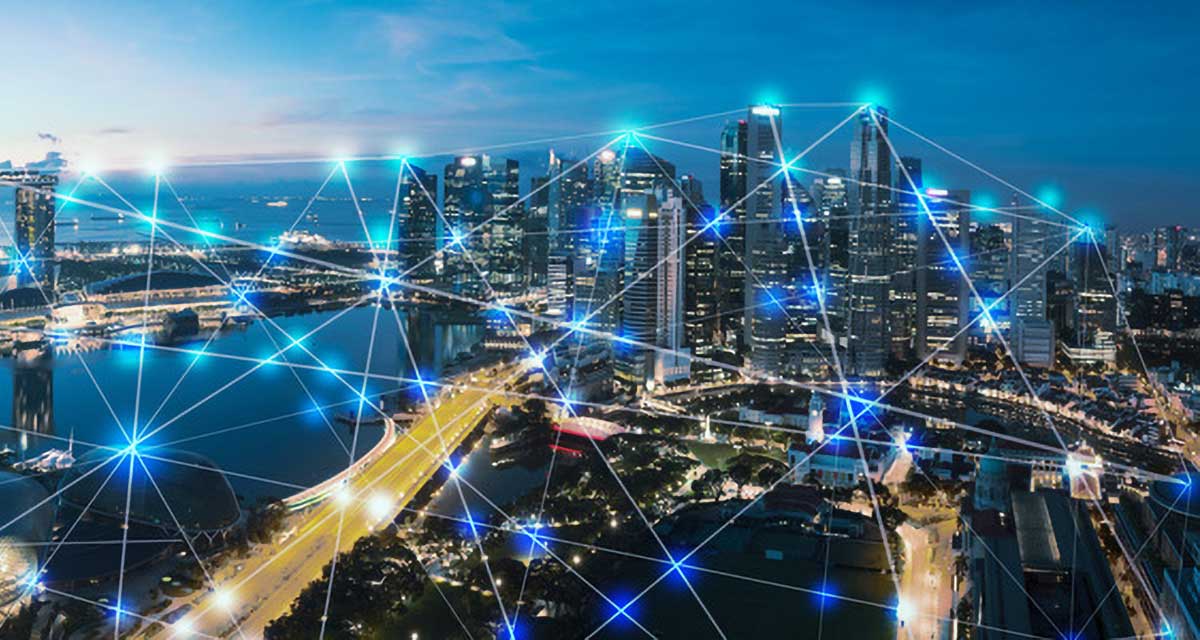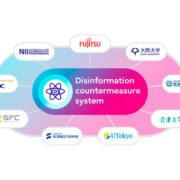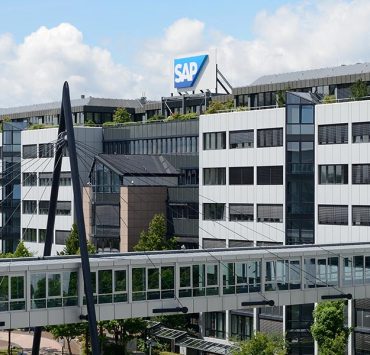Editor en La Ecuación Digital. Consultor de Innovación y Estrategia…
Esta mañana, la ETNO ha publicado una carta abierta con el título A call for Fair Share legislation – Europe must act to protect its digital future , firmada por los CEOS de las 20 principales operadoras de telecomunicaciones de Europa con un claro llamado a la acción a los responsables políticos de la UE para un replanteamiento regulatorio que pida a las grandes empresas tecnológicas una contribución justa a la infraestructura que tanto utilizan.
Antes de adentrarnos en su contenido, es esencial entender quién está detrás de esta carta. La ETNO, o European Telecommunications Network Operators’ Association, es una organización que representa a los principales operadores de telecomunicaciones en Europa. Con miembros en casi todos los países de la UE, la ETNO trabaja para promover un entorno normativo y comercial que fomente la innovación, la inversión y un mercado único digital en Europa. Estos operadores, que son vitales para el desarrollo y mantenimiento de la infraestructura digital del continente, buscan políticas que apoyen la competitividad de Europa en el escenario mundial y que garanticen la provisión de servicios de alta calidad a los ciudadanos europeos.
El tema central que emerge de la carta es claro: el futuro digital de Europa está en juego y el fair share es esencial para garantizar un equilibrio en el mercado de telecomunicaciones, según las operadoras.
El término fair share o contribución justa se ha consolidado como un concepto esencial en el mercado de telecomunicaciones. Se refiere a la premisa de que las entidades que obtienen el máximo provecho de la infraestructura digital deben asumir una contribución proporcional a su mantenimiento y desarrollo. A raíz de la carta, los operadores de telecomunicaciones en Europa sostienen que las grandes corporaciones tecnológicas, responsables de inmensos volúmenes de tráfico, deberían contribuir de forma más sustancial.
Esta carta subraya una tensión emergente entre las metas del Digital Decade 2030 de la UE y la situación financiera y operativa real de las telecomunicaciones. Aunque el tráfico de datos ha experimentado un aumento del 20-30% anual, alimentado principalmente por algunas grandes empresas tecnológicas, las operadoras enfrentan desafíos para obtener un retorno satisfactorio de su inversión.
Este desequilibrio lleva a cuestionamientos sobre la sostenibilidad financiera de los operadores y el equilibrio de poder en el mercado, ya que parece que las empresas tecnológicas utilizan la infraestructura sin cubrir adecuadamente sus costes, mientras que las telecomunicaciones enfrentan gastos crecientes sin un retorno adecuado.
Si estos retos no se enfrentan de manera proactiva, las consecuencias podrían ser significativas. Los operadores de telecomunicaciones podrían reconsiderar o pausar sus inversiones en aspectos vitales si no perciben beneficios suficientes. Europa, a su vez, corre el peligro de rezagarse en la evolución digital global. Esta situación también podría frenar el desarrollo de servicios y aplicaciones novedosos, y potenciar una inequidad en el mercado donde las grandes tecnológicas se aprovechan excesivamente de una infraestructura que no financian de manera proporcional.
La carta de la ETNO subraya la necesidad urgente de revisar y equilibrar las dinámicas entre las operadoras de telecomunicaciones y las grandes empresas tecnológicas en Europa.
La aspiración de un Europa digitalmente avanzada se apoya en un marco normativo que reconozca las realidades actuales del mercado y fomente una colaboración equitativa entre todos los participantes relevantes. Aunque los desafíos son evidentes, hay una oportunidad tangible de edificar un futuro digital robusto y justo para Europa, siempre y cuando se tomen las decisiones correctas en el momento oportuno.
A call for Fair Share legislation – Europe must act to protect its digital future
The following open letter has been signed by 20 telecom CEOs.
The future of connectivity – powered by secure ultra-fast, low latency 5G mobile and fibre networks – will underpin the next wave of digital transformation in Europe. Supported by these networks, Europe is already seeing new applications emerge in AI, virtual reality and IoT. More will come in the realms of smart cities, industry 4.0, the metaverse and future innovations of which we cannot yet conceive.
The EU set out its ambitious 2030 Digital Decade targets to enable these technologies, to support growth across industries and to enhance European competitiveness, while delivering far-reaching benefits for citizens through better healthcare, education, agriculture, food, security, and transport. However, these changes will also drive new demands on telecoms networks. Without the necessary investments, the European “Digital Decade” will fail. Future investments are under serious pressure and regulatory action is needed to secure them.
Today we are calling on EU policymakers to overhaul today’s telecoms regulatory framework and enable Europe’s industrial champions and SMEs to compete globally. A revision of spectrum policy, accepting the need for scale to avoid market fragmentation, and a fair and proportionate contribution from the largest traffic generators towards the costs of network infrastructure should form the basis of a new approach. The key to this debate is investment. The EU estimated that at least €174bn of new investment will be needed by 2030 to deliver the connectivity targets. The telecoms sector is currently not strong enough to meet that demand, with many operators barely earning their cost of capital. At the same time, data traffic has grown relentlessly at an average rate of 20-30% each year – primarily driven by just a handful of large tech companies. This growth is set to continue but, at the current conditions, will likely not result in a corresponding return on investment. While the telecoms sector has delivered improved connectivity, retail prices for telecommunications services have been generally falling over the past ten years at the same time as costs have increased. New technologies will raise demands on the underlying network infrastructure, further increasing costs.
For these reasons, European telecoms operators are calling on EU policymakers to ensure a fair contribution from those companies that benefit most from the infrastructure we build and operate. Such a mechanism should follow a well-defined and targeted scope addressing only the very largest traffic generators, while excluding smaller content and application providers. It could include accountability and transparency on contributions received so that operators invest directly into Europe’s digital infrastructure.
This measure would rebalance the market power along the value chain, while addressing the current asymmetries: Big tech companies pay today almost nothing for data transport in our networks, far from covering the costs needed to expand networks and achieve the ambitious EU targets. Telecoms providers cannot negotiate adequate prices for data transport; by contrast, some cloud providers today charge their customers up to 80 times as much for the onward transport of data from the cloud.
Moreover, there is currently no (economic) incentive to reduce unnecessary data traffic. The pandemic has proven that this is doable. A fair share regulation would incentivize a more responsible and efficient handling of data without impairing customer experience, also contributing to the EU’s objectives on energy consumption and the EU’s CO2 targets.
The European Commission has been clear that any regulatory mechanism would be implemented in full compliance with Net Neutrality rules. We agree. In addition, it should be stressed that the underlying objective of the Open Internet regulation is to ensure unfettered access to the internet for end-users. This objective is undermined by the lack of investment capacity on the part of telecoms companies, jeopardizing the build-out of new capacities in the network, so that operators can meet the data growth. An obligation to negotiate with operators a fair and adequate contribution, with a dispute resolution kicking in if negotiations fail, would help alleviate this challenge.
For the future of connectivity, Europe requires a broader reset of the policy framework governing the digital communications ecosystem, reforming today’s outdated (and still largely national) regulatory approaches that have so far failed the vision of a true telecoms single market. The opportunity is vast but without change, the EU risks failing to meet its policy ambitions and with these, the broader needs of its citizens and industry, falling even further behind its competitors on a global scale.
Signatories:
- Thomas Arnoldner, CEO, A1 Telekom Austria Group
- Ana Figueiredo, CEO and Chairwoman, Altice Portugal
- Edward Bouygues, Chairman, and Benoit Torloting, CEO, Bouygues Telecom
- Philip Jansen, Chief Executive, BT Group
- Andreas Neocleous, CEO, CYTA
- Timotheus Höttges, CEO, Deutsche Telekom
- Oliver Loomes, CEO, eir
- Christian Salbaing, Deputy Chairman, Hutchison Europe
- Mike Fries, CEO, Liberty Global
- Joost Farwerck, CEO and Chairman of the Board of Management, KPN
- Christel Heydemann, CEO, Orange Group
- Guillaume Boutin, CEO, Proximus Group
- Sigve Brekke, President and CEO, Telenor Group
- Michel Jumeau, CEO, TDC NET
- José María Alvarez-Pallete, Chairman and CEO, Telefónica
- Kjell Morten Johnsen, President and CEO, Tele2 Group
- Allison Kirkby, President and CEO, Telia Company
- Pietro Labriola, CEO and General Manager, TIM
- Victoriya Boklag, CEO, United Group
- Margherita Della Valle, CEO, Vodafone Group








